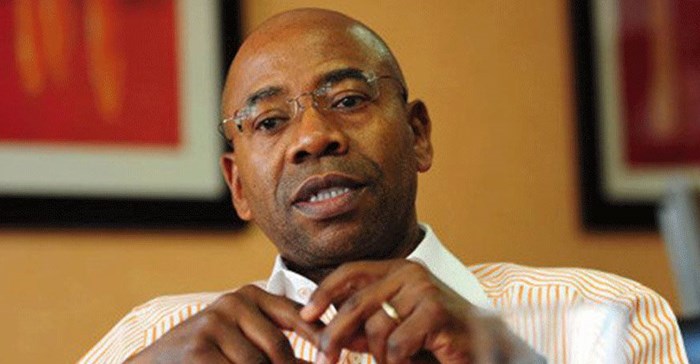A new study looks at the growing phenomenon of short selling in South Africa in the wake of the dubious Viceroy reports on some of the country's companies - including Steinhoff and Capitec - that shook investor confidence.

Bonang Mohale, CEO: Business Leadership South Africa
Investment Research in the Era of Fake News was commissioned by Business Leadership South Africa (BLSA) and conducted by Intellidex.
“Among other findings, our research has found that Viceroy’s research report on Steinhoff was substantially plagiarised from a report produced by a different hedge fund six months earlier. In addition, there are several problems with other Viceroy reports, including Capitec and Advanced Micro Devices, such as unsupported exaggerations, poor reasoning and misunderstandings of the markets they operate in,” says Dr Stuart Theobald, the chairman of Intellidex and one of the authors of the report.
“In our view, Viceroy has used the status it gained from its Steinhoff report, which benefitted from the fact that it was published at a point when there was major demand for information about accounting failures in Steinhoff, in order to publish spurious and weak reports that have the effect of damaging share prices.
Activist short selling
“We urge the public to critically examine the content of Viceroy’s reports which, we have argued, fails to meet professional research standards,” he says.
“There was shock and confusion about Viceroy’s Capitec report among both regulators and Investors when it first came out. There was a swirl of rumour about other companies Viceroy may target. Activist short selling is a new phenomenon in South Africa and we felt it was important to commission research that would draw out the facts and equip the public to separate good from bad practices. We commissioned the research primarily because our role as BLSA is to ensure our members and business in general build, protect and grow their investments to create shared prosperity and jobs in our economy,” says Bonang Mohale, BLSA’s CEO.
“Short selling can play a positive role in exposing corporate wrong-doing and improving the efficiency of markets. BLSA believes the economy benefits from robust criticism of corporate activity from the media as well as investors, whether they are long or short. However, it is important that this criticism be based on a reasonable assessment of the facts. It would harm the economy if negative aspersions are cast about companies, not because they represent genuine beliefs based on research, but because they are intended to damage the value of companies for profit. Such market manipulation is itself a form of corruption.”
More regulation needed
Mohale calls on authorities to strengthen market regulation to ensure that all players in our capital markets operate with the highest standards of corporate ethics. “We hope the Intellidex report contributes to the debate about corporate ethics and the need for regulation to catch up with sophisticated and subtler but equally damaging forms of market manipulation especially in an advanced economy like ours.
Specifically we should consider enhancing transparency by introducing regulations requiring disclosure of all short positions. This already happens in Australia, the UK and the US. By tracking short positions, authorities are able to determine when some or other social media campaign is connected to traders’ positions. This will also ensure the public has a better context in order to be able to interpret information that is spread about companies,” he says.
Two questions on short-side research
About the report’s findings, Theobald says: “We note also that the South African Reserve Bank commented on the day of the release of the Viceroy research that Capitec was well capitalised, solvent and had adequate liquidity. It later said it had confidence in the data and financial statements of the bank, and that the substantive allegations made by Viceroy were not accurate. The National Treasury has also described Viceroy’s actions as ‘reckless’ and ‘not acting in the public interest’.
“There is plenty of excellent short-side research, however our analysis indicates that Viceroy’s work does not fit in this category."
Users of short-side research should ask two questions:
- does the research represent the genuine beliefs of the authors?
- does the research contain adequate evidence and reasons for the beliefs it expresses?
In Viceroy’s case, the answer to the second question is mostly ‘no’, while in some cases we are forced to conclude the answer to the first question is also ‘no’. Given that, we must conclude that the function of Viceroy’s research is not to share new facts and analysis, but rather to damage the share prices of companies for it to generate a profit. This behaviour is not in the public interest and may well be illegal in terms of market manipulation rules.”






















































